|
Ever wondered if the chill in the air means packing away your paddles? Fortunately winter's arrival doesn't mean you need to hang up your paddles til spring time, and in fact the cooler weather may be more pleasant than the hotter temps common in summer and early fall. In this article, we’ll delve into the heart of cold-weather play, specifically:
Ready? Let’s lace’em up and get after playing pickleball in frosty temps! Can You Play Pickleball in Cold Weather?Absolutely - playing pickleball in cold weather isn’t much different from playing other outdoor sports when temperatures drop. In fact, running around a pickleball court is a great way to warm up in cold weather. However, colder temperatures can impact pickleball equipment, especially the pickleballs. In cold weather below 45 degrees F, the plastic on pickleball can become brittle and the balls are more susceptible to cracking or breaking. It’s not uncommon for hard hitters to crack 4 or more balls over 2 hours of play when temps are below 45 degrees F, so the cost in balls alone of a cold weather outing is worth considering. If you struggle finding pickleballs that last when you play outside in the winter, check out our popular review of the "3 Best Cold Weather Pickleballs"! How Cold is Too Cold for Pickleball?Unless temps get close to 0 degrees F, there aren’t any equipment or court limitations that would prevent you from playing pickleball when it’s cold outside. So too cold is whatever temperature you are uncomfortable in outside.  If you are willing to brave the cold temps, it’s easy to bundle up with thin layers of clothing, de-layer as needed, and running around the court will warm you up quickly. Tips for Playing Pickleball in Cold WeatherGame play shouldn’t change much when temps drop - the balls, paddles, and courts should perform as they do when temps are warmer. So the important decisions on playing pickleball in cold weather are around staying warm with the proper clothing and choosing the right equipment:  Does Cold Weather Affect Pickleball Paddles?Your normal paddle will work just as well in cold weather as it will in warm weather, so there is no need to have a special paddle for cold weather. Note though, that extreme cold (well below freezing) can affect your pickleball paddle’s core or face, leading to cracking or weakening. So store your pickleball paddles inside, and not in a cold car or garage, during extreme cold weather. Why Do Pickleballs Crack in the Cold?Pickleballs are made of plastic, which weakens and becomes brittle in colder temps below 45 degrees Fahrenheit. In addition, holes are punched in the pickleballs during the manufacturing process, and this weakens the plastic especially in the areas around the holes. This is why most cracks or breaks start at the holes in a pickleball. As balls hit paddles and even the cold, concrete pickleball court, the areas around the pickleball holes weaken and cracks form that ultimately expand and break more as balls impact paddles and the court.  Cracks appearing in a Dura pickleball
How to Keep Pickleballs from Cracking in Cold WeatherUnfortunately it’s inevitable that pickleballs will crack faster as temperatures get colder (especially if your group hits the ball hard!). However, these tips for handling pickleballs before and after you play in cold weather will help your balls last longer:
Best Pickleballs for Cold WeatherIt's important to keep in mind that every pickleball will eventually crack or break in cold temps. The frequency of cracking increases for most balls at temperatures of 40 degrees F or lower. The best outdoor balls for cold weather are the pickleballs made of softer plastic. Due to the material used, these softer balls are more forgiving and “bend” a little more at impact with a paddle or the surface of the court. This forgiving bend at impact helps the balls avoid cracking as often as the harder plastic pickleballs. "Softer" outdoor balls that are more forgiving at impact will last longer!
Based on our own experience as well as other customer reviews on the web, the following are the best pickleballs for cold weather: Selkirk Pro S1: Selkirk bills this ball as having "unmatched durability" and also offers a 1 year warranty on cracks (but read the fine print!). PCKL Elite 40: PCKL says it's "designed for durability" and is "cold weather-rated". Franklin X-40: The Franklin X-40 is a popular ball and 1 of the original pickleballs. It is a good, durable ball that handles cold weather as well as any other outdoor ball. For our complete breakdown and recommendations on the best cold weather pickleballs, check out our review of the "3 Best Cold Weather Pickleballs". **We use affiliate links for these products on Amazon. If you find our content helpful and purchase these balls, it is helpful to us if you buy using these links (i.e., we get a very small commission). Tips on the Best Pickleballs for Cold WeatherWhen buying balls for outdoor play, it’s important to buy balls specifically for outdoor use as they are made to be used outside and are more durable than indoor pickleballs. Also consider your outdoor surroundings when purchasing outdoor balls. For example, white or light yellow balls won’t be as easy to see if there is snow outside of the court. We also wanted to note that most tournaments currently use the Franklin X-40 or Onix Dura Fast (aka “Duras”), so this is worth considering if you plan to play tournaments. However, DURAs are made of harder plastic and are very susceptible to cracking quickly in temps below 50 degrees. Frequently Asked Questions (FAQs): Can You Play Pickleball in Cold Weather?Can pickleball be played in the winter?Yes - playing pickleball in cold weather isn’t much different from playing when it’s warmer out. Running around a pickleball court is great exercise and a great way to warm up when it’s cold out. However, colder temperatures can impact pickleball equipment, especially the pickleballs. In cold weather below 45 degrees F, the plastic on pickleball can become brittle and the balls are more susceptible to cracking or breaking. It’s not uncommon for hard hitters to crack 4 or more balls over 2 hours of play when temps are cold, so the cost in balls alone of a cold weather outing is worth considering before going out. What pickleballs won’t crack in the winter?There aren’t currently any pickleballs that won’t crack eventually, regardless of outside temperatures. Since pickleballs are made of thin plastic, that plastic will weaken over time and eventually crack or break as the ball hits paddles and the concrete playing surface. To minimize balls cracking when it’s cold, buy balls made of “softer” plastic. Softer plastic pickleballs for cold weather include: Can you play pickleball in the rain?Yes! We wrote a post on playing in wet conditions, including safety tips and even drills you can do on a wet pickleball court. |








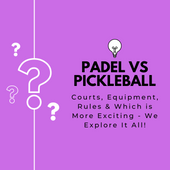
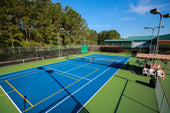
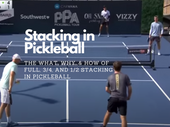
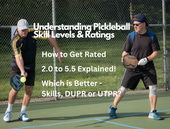
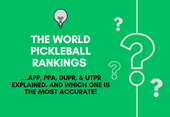
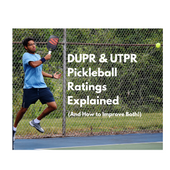
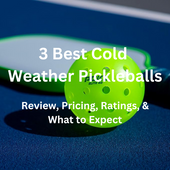
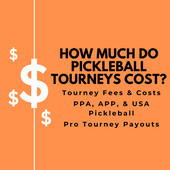
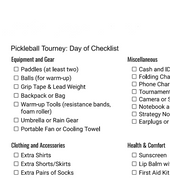
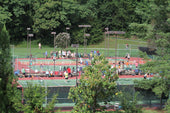
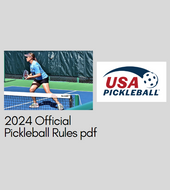


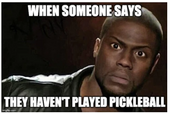
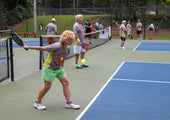
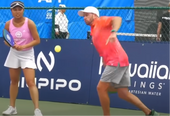













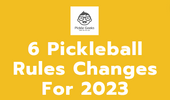

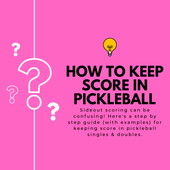
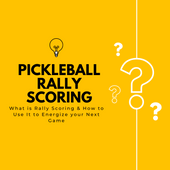
1 comment
I’ve definitely played in chilly weather, and it can be a challenge! Layering up and using a good paddle really helped me stay comfortable and focused. I recently got a paddle from Volley Llama Pickleball, and it performed well even in colder conditions. For anyone looking to play in various weather, their paddles are worth checking out at https://volleyllamapickleball.com!